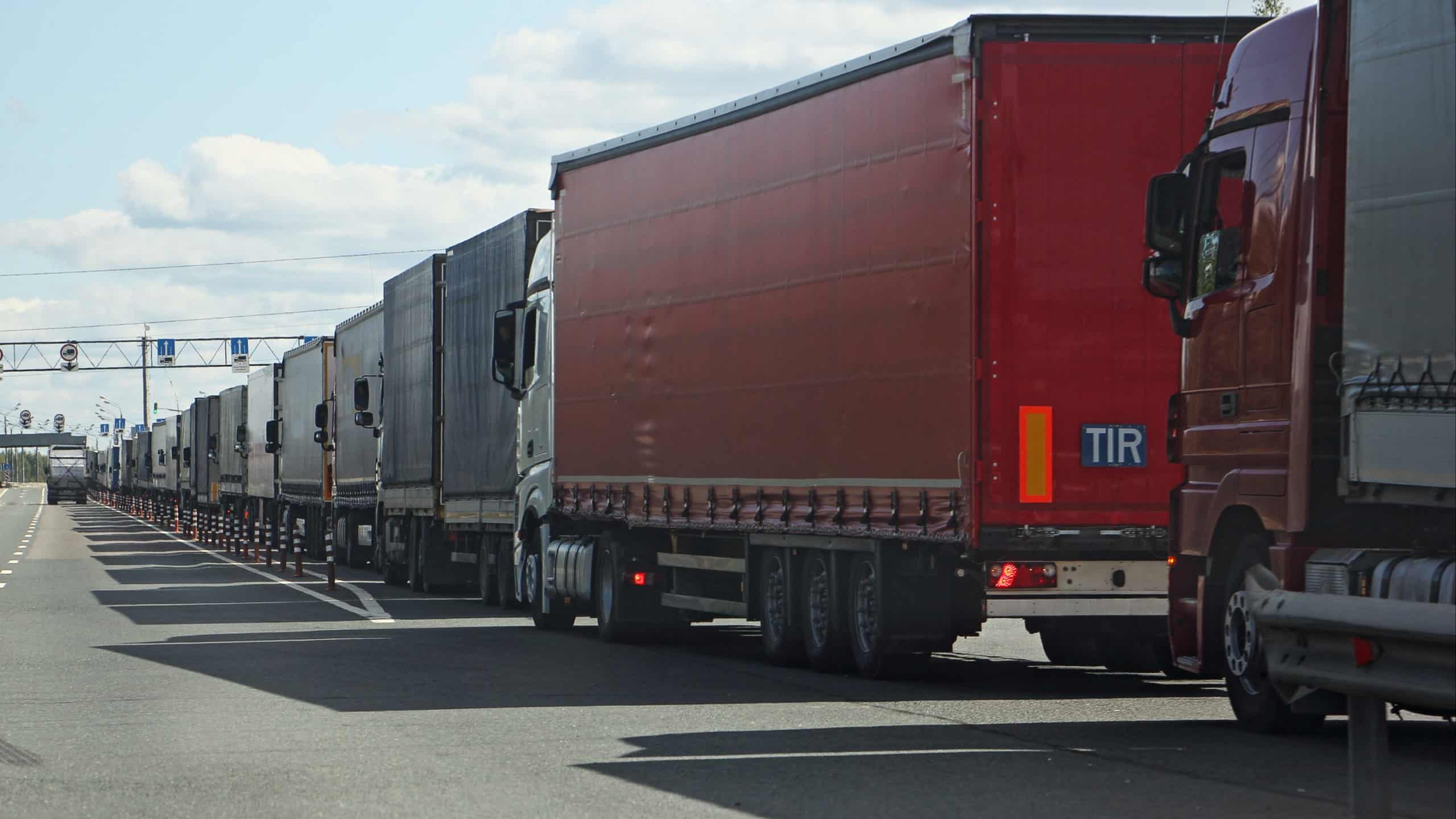Gross vehicle weight rating, commonly abbreviated GVWR, is the maximum safe weight of your vehicle. The vehicle manufacturer sets this number and it does not change. The GVWR can be found on your vehicle’s Safety Certification Label, typically located on the driver’s side door.[1]
Table of Contents
- What is Gross Vehicle Weight (GVW)?
- How Does GVWR Work?
- What Is Gross Combined Weight Rating (GCWR)?
- What is Gross Axle Weight Rating (GAWR)?
What is Gross Vehicle Weight (GVW)?
Gross vehicle weight, often seen as GVW, is the calculated weight of your vehicle, including fuel and other liquids necessary for the vehicle’s function, passengers, and cargo.
How Does GVWR Work?
GVWR is determined by first calculating the combined curb weight, including the weight of fuel and other liquids necessary to the vehicle’s function, plus the weight of passengers, cargo, any accessories added to the vehicle, and the tongue weight of a tow trailer.

Why is GVWR Important?
Knowing your vehicle’s Gross Vehicle Weight Rating is necessary to operate your vehicle safely. Exceeding the GVWR can cause:
- Decreased vehicle lifespan: Exceeding the Gross Vehicle Weight Rating stresses your vehicle, potentially shortening its life.
- Hazardous conditions for the driver and others on the road: Ignoring the Gross Vehicle Weight Rating can be dangerous for yourself and others. Exceeding the limit decreases the efficiency of your brakes, transmissions, and suspension, increasing the chance of a blowout and impacting your ability to slow down and stop safely.
GVWR is used to calculate both Payload Capacity and Towing Capacity. For semi-trucks and other large commercial vehicles, GVWR determines how much weight the truck can safely pull. When a truck exceeds its GVWR, it can cause damage to the truck and trailer, as well as to the roadways. When truck crashes occur and GVWR has been exceeded, truck drivers and manufacturers could be liable in a truck accident injury lawsuit.
Source: Alternative Fuels Data Center
Important Terms Related to GVWR
Curb Weight
Curb Weight is the weight of the vehicle, including a full fuel tank and other necessary liquids and equipment. This weight does not include passengers, cargo, and any non-standard equipment.
Tongue Weight
The “tongue” is the part of the trailer that extends in front of the cargo area and attaches to a trailer hitch on the rear of a vehicle. Tongue Weight is the weight that a trailer puts onto a vehicle’s towing hitch.
Towing Capacity
Towing Capacity is the maximum weight your vehicle can safely transport when towing a trailer.
Towing Capacity can be calculated by adding your vehicle’s dry weight – the weight of the empty vehicle without any necessary liquids – plus the weight of passengers, cargo, and necessary liquids, like fuel.
Payload Capacity
Payload Capacity, sometimes called the Cargo Carrying Capacity (CCC), is the maximum safe weight your vehicle can safely transport inside its cabin or other storage areas. This can be calculated by subtracting the curb weight from the GVW.
What is Gross Combined Weight Rating (GCWR)?
Often confused with Gross Vehicle Weight Rating, Gross Combined Weight Rating is the maximum safe weight of both the loaded vehicle and loaded trailer. The GCWR is sometimes referred to as Gross Combined Vehicle Weight Rating (GCVWR).
How Does GCWR Work?
The GCWR is set by the manufacturer, meaning the number is constant. This number is set based on your vehicle’s suspension, axel power, frame strength, and towing capacity.
For semis, the manufacturer uses the truck’s chassis to determine the GCWR of the truck and trailer.
You can locate the GCWR in your vehicle’s Owner’s Manual or calculate it by combining your vehicle’s GVW and the trailer’s gross weight, also known as GTW or Gross Trailer Weight.
Why Is GCWR Important?
Similar to GVWR, it is vital to be aware of your vehicle’s GCWR and not exceed the limit. Exceeding the GCWR can cause damage to both the vehicle and trailer and threaten the safety of the driver and others on the road.
Exceeding the GCWR can cause:
- Increased difficulty controlling the payload
- Increased difficulty slowing down or braking
Important Terms Related to GCWR
Gross Trailer Weight
Gross Trailer Weight is the weight of a trailer with all cargo inside.
Chassis
The chassis is the skeletal framework used to support the payload while housing essential components, such as the truck’s engine, transmission, and suspension.
What is Gross Axle Weight Rating (GAWR)?
GAWR is the maximum weight that each axle can carry. The front and rear axles of a vehicle will have different weight ratings.
How Does GAWR Work?
The Gross Axle Weight (GAW) can be determined by weighing the front and rear of the vehicle separately once it has been loaded with all passengers, cargo, and necessary fluids. The GAW can then be compared to the GAWR to ensure it does not exceed the rating.
Why Is GAWR Important?
When the GAWR is exceeded, extra pressure is placed on the axles, which spells danger for both the vehicle’s driver and others on the road. Oversized loads are more difficult to control, especially when the load is unevenly distributed between the axles.
Excess weight on a vehicle’s axles can cause:
- The steering to become less responsive
- The brake system to become less efficient
- Potential for tire blowouts or framework to bend or break due to excess weight, causing loss of control over the vehicle
Frequently Asked Questions About Gross Vehicle Weight Rating
Can you legally change GVWR on a truck?
Yes and no. The gross vehicle weight rating is set by the manufacturer based on the “weakest link” within the structure of your vehicle. Though GVWR cannot be changed, cargo and towing capacity can be increased by replacing your “weakest link” part with a more sturdy, weight-bearing component.
What is the 80/20 towing rule?
The 80/20 towing rule is a safety guide to ensure that the towing capacity of your vehicle is never exceeded. 80/20 refers to hauling no more than 80 percent of your vehicle’s max towing capacity, meaning the remaining 20 percent acts as a “safety buffer,” making commercial vehicles safer on the road.
What is the legal towing speed?
In California, the legal towing speed for all vehicles hauling a trailer is 55MPH. This speed limit is in place to prevent commercial vehicles from having to make quick stops, which gives the potential to jack-knife when the trailer turns 90 degrees from the hitch or collides with another vehicle.
More Helpful Resources
- Truck Accident Statistics – Findings For Semi-Trucks & Commercial Vehicles
- What To Do After a Car Accident
- How To Describe a Car Accident
- Speak with a Truck Accident Lawyer











